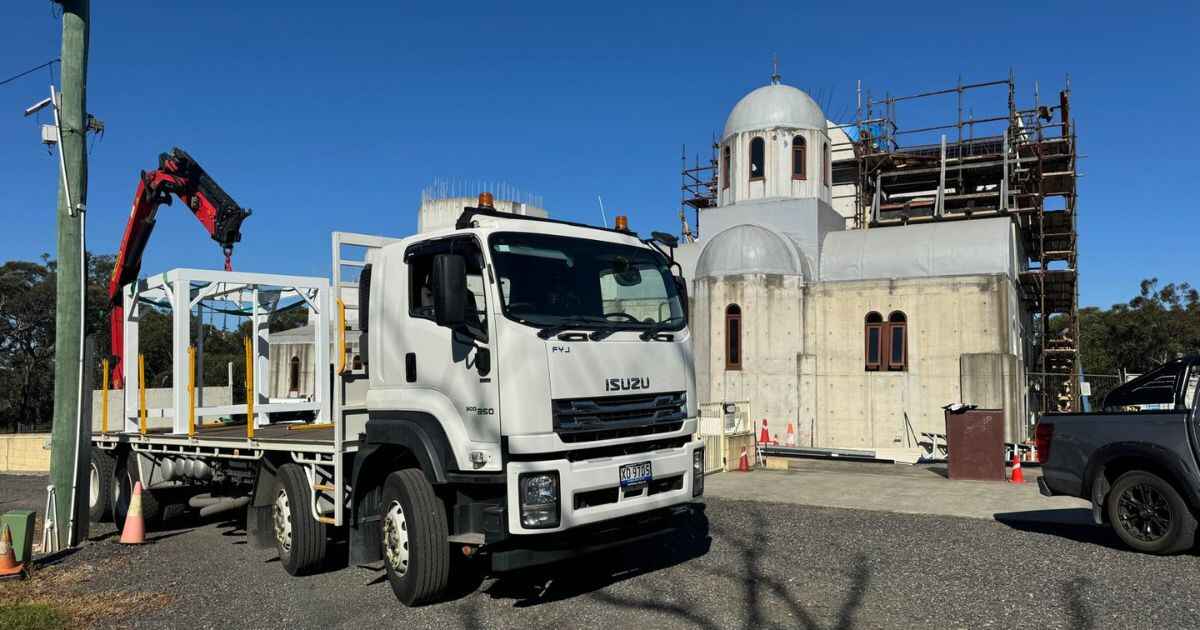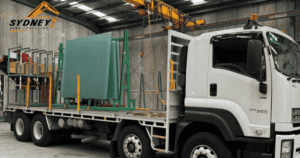When it comes to heavy lifting and construction projects, one of the critical decisions you’ll face is whether to buy or hire a crane. Both options come with their own sets of advantages and disadvantages, making the choice dependent on your specific needs and circumstances. In this blog, we’ll explore the pros and cons of buying versus hiring a crane to help you make an informed decision.
Advantages of Buying a Crane
1. Long-Term Cost Savings
If your projects require frequent and extensive use of a crane, purchasing one can result in significant long-term cost savings. The initial investment might be steep, but over time, owning a crane can be more economical than repeatedly paying rental fees. By avoiding ongoing rental expenses, your company can allocate financial resources more efficiently and improve overall profitability.
2. Availability
Owning a crane means you have it at your disposal whenever you need it. There’s no need to worry about availability issues or rental schedules, allowing you to plan and execute projects more efficiently. This flexibility can be particularly beneficial for time-sensitive projects, where delays in accessing equipment can lead to increased costs and missed deadlines.
3. Customization
When you buy a crane, you have the opportunity to customize it to meet your specific project requirements. Whether it’s adding specialized attachments or making modifications, owning a crane gives you the flexibility to tailor it to your needs. Customization can enhance operational efficiency and ensure that the equipment is perfectly suited to your unique tasks, ultimately leading to better project outcomes.
4. Investment Value
A crane is a substantial asset, and owning one can add significant value to your company’s equipment portfolio. Over time, this investment can appreciate or maintain its value, providing financial benefits beyond immediate project needs. Additionally, owning a crane can enhance your company’s reputation and capabilities, potentially attracting more clients and lucrative contracts.
Disadvantages of Buying a Crane
1. High Upfront Costs
The most significant drawback of buying a crane is the high upfront cost. This includes not only the purchase price but also additional expenses such as taxes, insurance, and financing fees. The substantial initial investment can strain your company’s finances, especially if cash flow is limited or if the crane is not utilized frequently enough to justify the cost.
2. Maintenance and Repair
Owning a crane comes with the responsibility of maintenance and repairs. Regular servicing, part replacements, and unexpected breakdowns can add up, increasing the total cost of ownership. Ensuring that the crane is always in optimal working condition requires a dedicated budget and skilled personnel, which can be a significant ongoing expense.
3. Storage and Transportation
A crane requires proper storage and transportation logistics. You’ll need adequate space to store it when not in use and specialized equipment to transport it to various job sites, adding to the overall costs. Managing these logistical challenges can be complex and resource-intensive, particularly for companies that operate in multiple locations or have limited storage facilities.
4. Operational Risk
Operating a crane involves inherent risks, including safety hazards and potential accidents. Owning a crane means assuming these operational risks, which can have serious financial and legal implications. Comprehensive training and strict adherence to safety protocols are essential to minimize these risks, but they also represent additional costs and responsibilities for the company.
Advantages of Hiring a Crane
1. Cost-Effective for Short-Term Use
Renting a crane is a cost-effective solution for short-term projects. It allows you to access the necessary equipment without the hefty upfront investment, making it ideal for businesses with occasional crane needs. By only paying for the crane when it’s needed, companies can manage their budgets more effectively and avoid the financial burden of ownership.
2. No Maintenance Responsibility
One of the biggest advantages of hiring a crane is that you don’t have to worry about maintenance and repair costs. The rental company takes care of all servicing and upkeep, saving you time and money. This arrangement allows you to focus on your core business activities without the distraction of equipment maintenance, leading to increased productivity and efficiency.
3. Access to Latest Equipment
Rental companies often update their inventory with the latest models and technology. By hiring a crane, you can benefit from using the most advanced and efficient equipment available without having to invest in new machinery. Access to cutting-edge technology can enhance project performance and ensure compliance with industry standards and regulations.
4. Expertise and Support Worker
When you hire a crane, you typically get access to experienced operators and support staff. This ensures that the crane is operated safely and efficiently, reducing the risk of accidents and increasing productivity. The expertise provided by rental companies can be invaluable, especially for complex or high-stakes projects that require specialized skills and knowledge.
Disadvantages of Hiring a Crane
1. Higher Long-Term Costs
While renting a crane is cost-effective for short-term use, it can become expensive over the long term. Repeated rentals can add up, potentially costing more than purchasing a crane outright. For companies with ongoing or frequent crane needs, the cumulative rental expenses can exceed the cost of ownership, making it a less viable option in the long run.
2. Availability Issues
Depending on demand and the rental company’s inventory, you might face availability issues. This can cause delays in your project schedule, especially during peak construction seasons. The uncertainty of rental availability can complicate project planning and lead to costly downtime if a crane is not accessible when needed.
3. Lack of Customization
Rental cranes come as they are, with limited options for customization. If your project requires specialized modifications or attachments, hiring a crane might not meet all your needs. The inability to customize rental equipment can restrict operational flexibility and potentially impact project efficiency and effectiveness.
4. Dependency on Rental Company
When you hire a crane, you’re dependent on the rental company’s reliability and service quality. Any issues with their equipment or support can directly impact your project’s progress and success. Dependence on external providers can introduce additional risks and uncertainties, particularly if the rental company fails to deliver as expected.
Should I Buy or Rent a Crane?
Deciding whether to buy or rent a crane hinges on several factors, including the frequency of use, budget constraints, and specific project requirements. For most businesses, especially those with sporadic crane needs or tight budgets, renting a crane is the more sensible option. It offers flexibility, access to the latest equipment, and eliminates the burdens of maintenance and operational risks. Rent a crane allows you to allocate resources more efficiently and focus on the core aspects of your project without the financial strain of owning expensive machinery. Furthermore, the expertise and support provided by rental companies can enhance project outcomes and ensure safe, efficient operations.
Conclusion
Both buying and hiring a crane have their distinct advantages and disadvantages. By carefully evaluating your project needs, budget, and long-term goals, you can determine the best option for your business. While buying a crane might be suitable for companies with frequent and specialized crane needs, renting a crane remains a practical and flexible choice for many. Ultimately, the decision should align with your operational strategy and financial capacity, ensuring the successful execution of your projects. Whether you choose to buy or rent, having access to the right equipment is crucial for the success of your construction and lifting operations.




